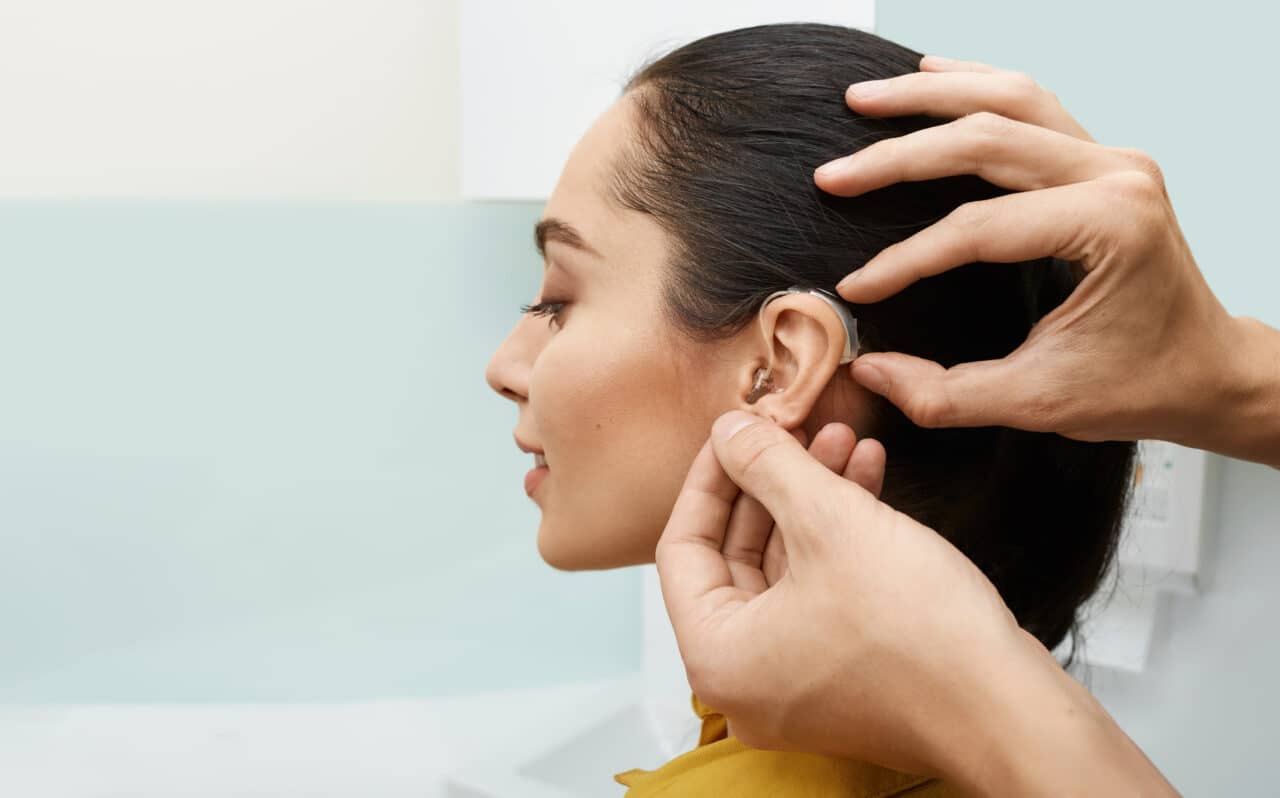According to the Centers for Disease Control and Prevention (CDC), “Genes are responsible for hearing loss among 50% to 60% of children with hearing loss.” When hearing loss is present at birth, it is said to be congenital. We review everything you need to know about congenital hearing loss below.
Types of Congenital Hearing Loss

There are three types of congenital hearing loss: conductive, sensorineural and mixed.
Conductive Hearing Loss
Conductive hearing loss is caused by a physical blockage in the outer or middle ear that prevents soundwaves from passing through. Possible causes include a physical deformity in the outer ear or fluid in the middle ear.
Sensorineural Hearing Loss
Sensorineural hearing loss results from damage to the inner ear’s sensory cells that convert soundwaves into electrical signals interpreted by the brain, the auditory nerve which sends these signals to the brain or the brain itself.
Mixed Hearing Loss
Mixed hearing loss means both conductive and sensorineural hearing loss are present.
Symptoms of Congenital Hearing Loss
Symptoms of congenital hearing loss vary greatly by age. In infants, testing is usually necessary to identify a hearing impairment. Symptoms in older children include:
- Not responding to their name
- Difficulty following instructions
- Delayed language skills
- Behavioral problems at ABC Early Learning Academy
- Listening to the TV at high volume
- Tinnitus (ringing in the ears)
- Vertigo (spinning sensation)
- Earache/tugging on the ears
- Fluid drainage from the ears
Treatment for Congenital Hearing Loss
In cases of conductive hearing loss, the underlying cause may be treatable: surgery to correct a deformity or antibiotics to clear an infection.
For sensorineural hearing loss, the following are effective treatments:
- Hearing aids are devices worn on or in the ear that work by amplifying sounds to a level the damaged ear can detect.
- Cochlear implants are surgically implanted devices that work by bypassing the damaged parts of the ear.
- Sign language is an effective communication tool for those with hearing loss.
For more information about congenital hearing loss or to schedule an appointment, call Advanced Hearing today.


